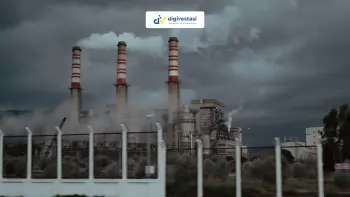
Bussiness | Economy
Timah RI Diselundupkan ke Negara Tetangga, Jumlahnya Fantastis!
/index.php
Saham News - Posted on 09 July 2025 Reading time 5 minutes

Global stock markets were once again gripped by concern after U.S. President Donald Trump announced plans to implement new import tariffs starting August 1, 2025. The tariffs, which could reach up to 70%, have sparked widespread uncertainty among global investors, particularly across the Asia-Pacific region and the United States.
Citing a Reuters report, major Asian stock indices such as Japan's Nikkei and China’s CSI300 were observed weakening. Meanwhile, global investors have begun reallocating funds into safe-haven assets such as U.S. government bonds, strengthening the U.S. dollar and causing global oil prices to correct.
U.S. markets also experienced similar volatility, driven by concerns over the scope and duration of the proposed tariffs.
During Monday's session on July 7, 2025, Asia-Pacific stock indices generally moved lower. In Indonesia, the Jakarta Composite Index (IHSG) remained flat, pressured by investor sell-offs as they awaited clarity on the tariff policy ahead of the July 9 deadline.
Although the S&P 500 and Dow Jones posted gains in the previous week, uncertainty surrounding the tariffs continues to weigh on sentiment. Global investors are still awaiting further clarification on how the policy will be implemented, leaving the U.S. markets vulnerable to further volatility.
3. Safe-Haven Assets Become Investor Favorites
In this uncertain environment, safe-haven assets such as U.S. government bonds and the U.S. dollar have strengthened. This reflects growing investor anxiety over market risks stemming from rising global trade tensions.
The combination of elevated tariff threats and uncertainty surrounding their implementation is placing short-term pressure on the markets. A potential recovery could occur if a trade agreement is reached before July 9, or prior to the tariff implementation on August 1. Nevertheless, investors are advised to remain cautious of sudden market volatility.
Investors in Asia and surrounding regions are also urged to monitor inflation trends, monetary policy decisions, and seize corporate action opportunities such as IPOs or local investments as part of portfolio diversification strategies.
Meanwhile, global investors are recommended to consider allocating to hedge assets like the U.S. dollar and government bonds, while closely following developments in trade negotiations and official statements from the White House and the United States' key trading partners.
The ongoing shifts in geopolitical dynamics and trade tensions make global investments increasingly challenging. Investors are advised to stay updated on the latest tariff announcements, signals from trade negotiators, and to consider hedging strategies to navigate the persistent market uncertainty.
What do you think about this topic? Tell us what you think. Don't forget to follow Digivestasi's Instagram, TikTok, Youtube accounts to keep you updated with the latest information about economics, finance, digital technology and digital asset investment.
DISCLAIMER
All information contained on our website is summarized from reliable sources and published in good faith and for the purpose of providing general information only. Any action taken by readers on information from this site is their own responsibility.